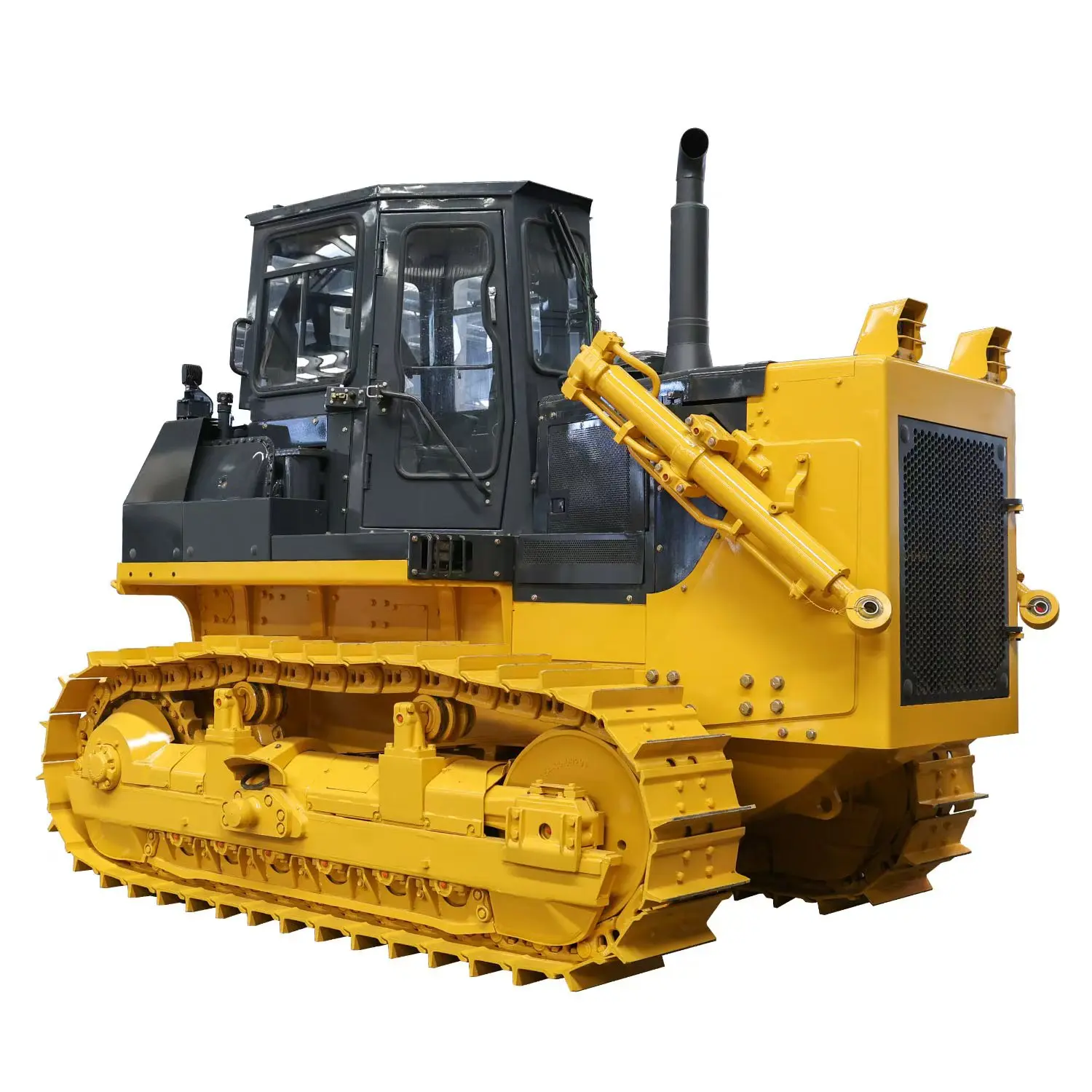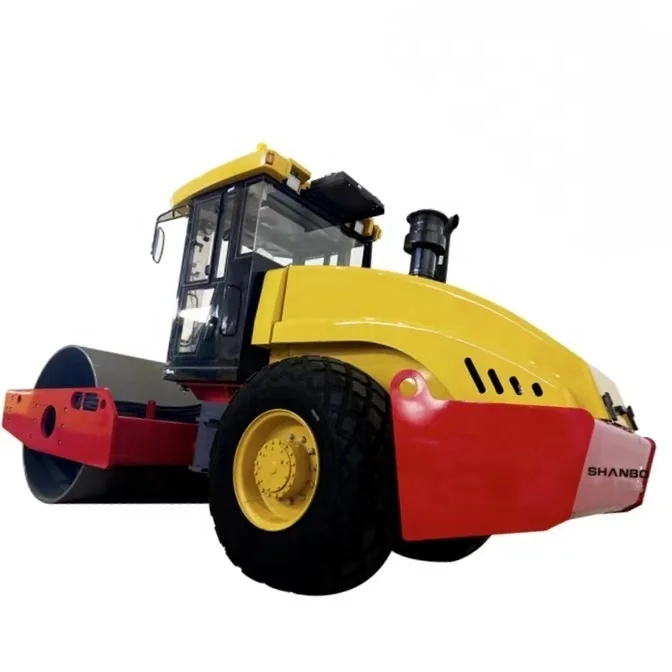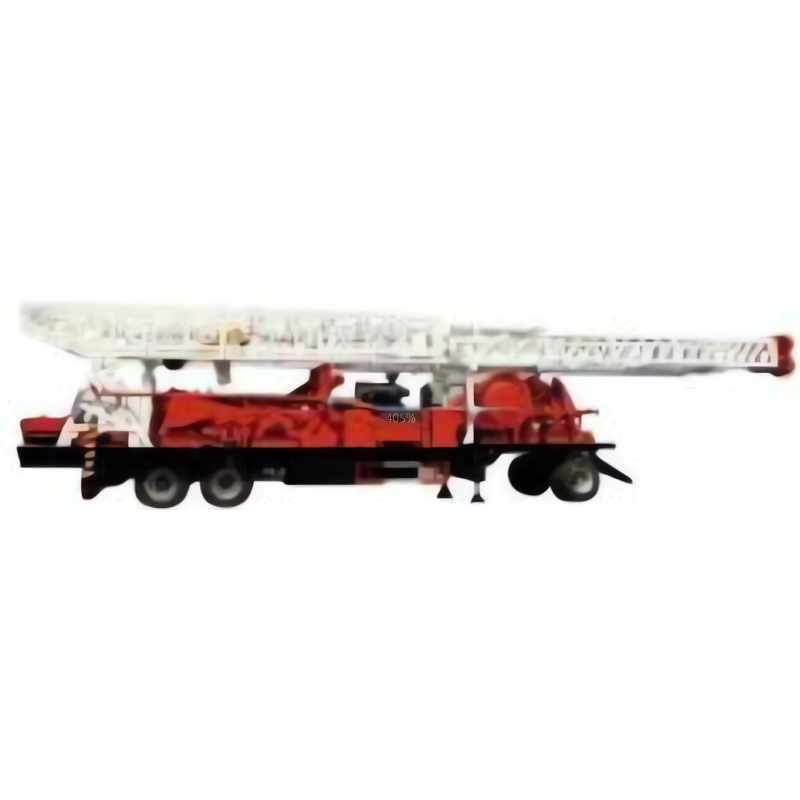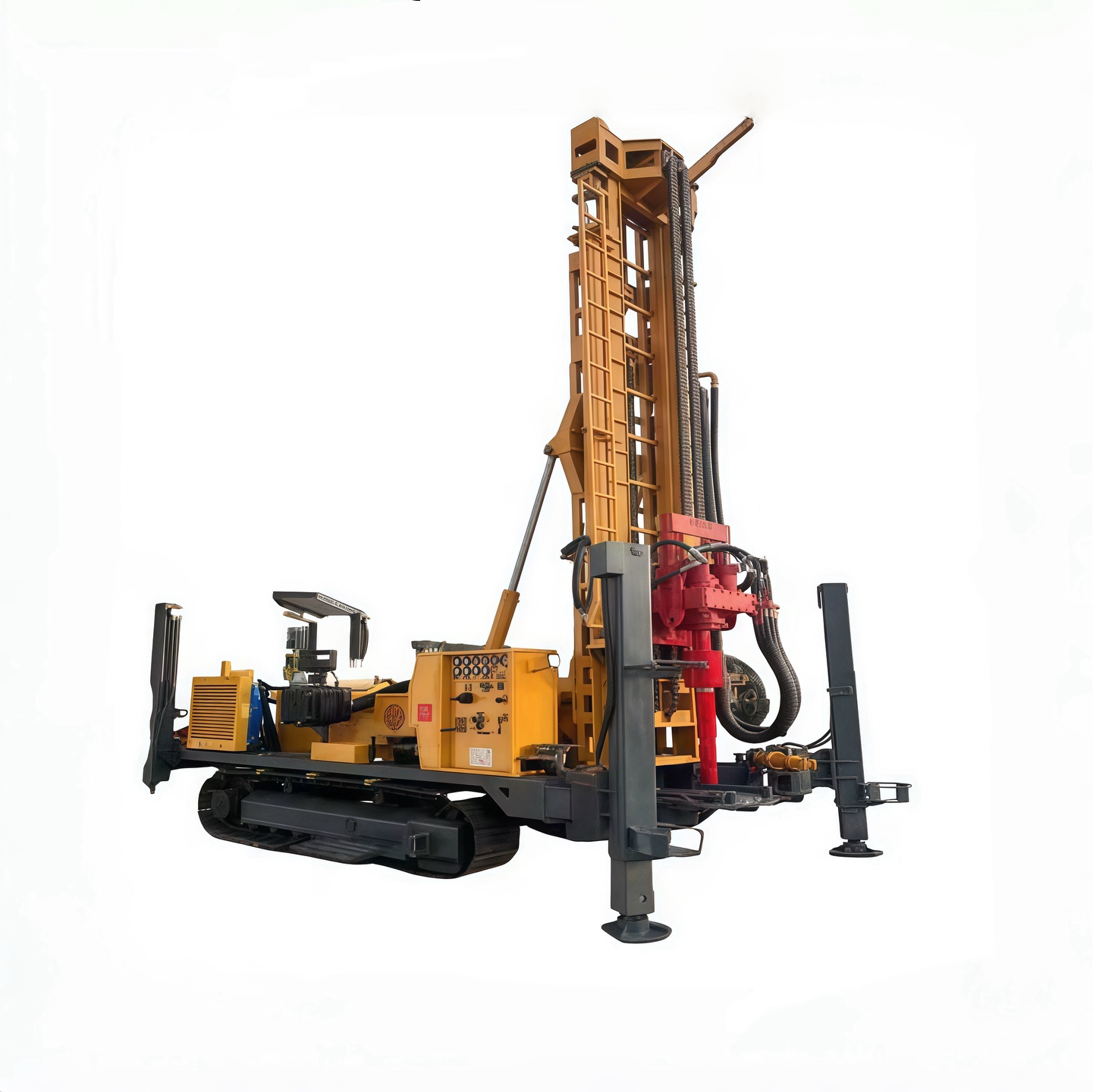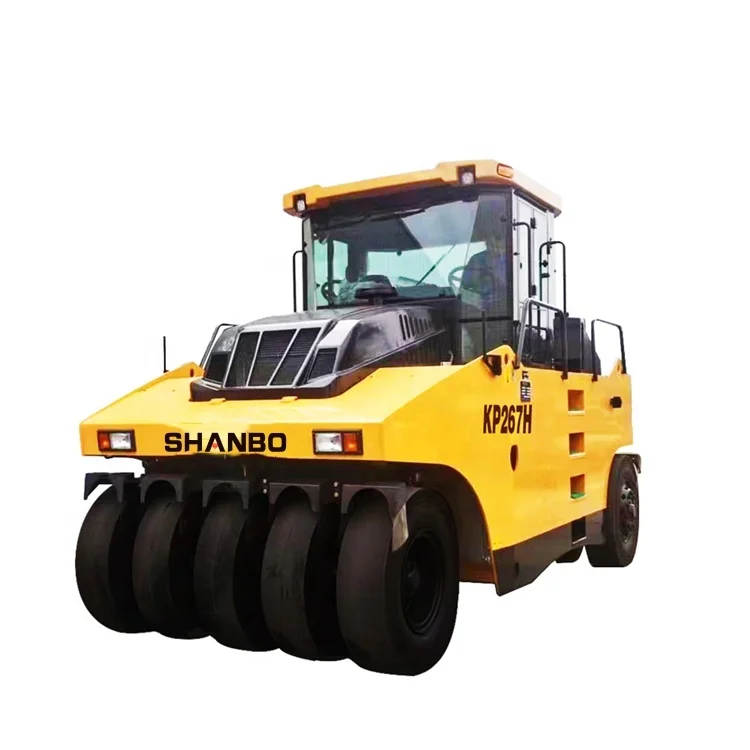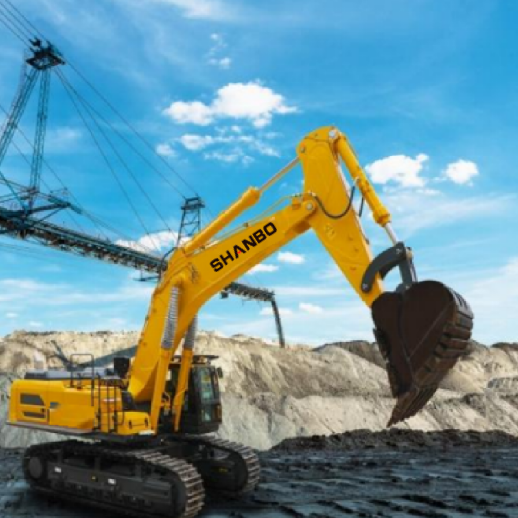Comparing Bulldozer Prices Across Different Brands
Key Factors Influencing Bulldozer Prices
Engine Power and Performance Specifications
How much power a bulldozer has under the hood really affects what it costs. Machines packed with more horsepower generally come with bigger price tags because building them requires some pretty sophisticated engineering work. Take those heavy duty models with around 300 hp or even more – these bad boys are built for tough jobs like mining operations or major construction sites across the country. Some of these top end units easily run past the million dollar mark when all factors are considered. Why? Well, they deliver better torque output and have stronger blades that just plain get the job done faster in challenging conditions. Fuel type matters too when looking at prices. Equipment designed to run on cleaner burning alternatives often carries a premium since manufacturers need to invest extra resources into making their technology greener while still maintaining performance standards.
The specs matter too when it comes to what people pay for bulldozers. Things like torque output and how big the blade is definitely impact the final price tag, especially when manufacturers start adding those fancy modern features. Looking at market trends, we see that machines equipped with powerful engines tend to command much higher prices than their basic counterparts. Prices jump pretty dramatically when customers decide they want better engine specs. There's no question about it really - stronger engines mean bigger bucks spent whether someone is buying brand new equipment or looking at pre-owned models instead.
Size Classifications: Small vs Medium vs Large Dozers
When it comes to bulldozer prices, size really does matter. These machines generally come in three main sizes - small, medium, and large - and each type works better for certain jobs while affecting what people are willing to pay. The smaller models, those with around 75 horsepower or less, tend to be the best value for money. They work great on residential sites where space is tight because they can turn around easily. Most folks looking at buying one will find that brand new small bulldozers typically run somewhere below the $100k mark, which makes sense for contractors working on smaller projects without breaking the bank.
Bulldozers in the medium range usually have between 100 and 300 horsepower. They're pretty common on commercial construction sites where they need to handle both strength requirements and tight spaces. The starting price tag for these machines is roughly $100k, but folks should expect to pay way more if they want advanced features or higher power output. When we get into the large category, these bad boys typically have over 350 horsepower under their belts. Big bulldozers like this are built for serious work on industrial projects and complicated earthmoving jobs. According to industry numbers, the entry point for large models is about $1 million, though some top-of-the-line versions will set builders back well over $2 million. As anyone who's ever looked at heavy equipment knows, bigger bulldozers mean more power, greater versatility across different terrains, and naturally, a much higher price point.
Brand Reputation and Market Positioning
The reputation of a brand really affects how much people pay for bulldozers. Big name manufacturers can ask for top dollar because buyers know what they're getting when it comes to build quality, how reliable the machines are, and how long they'll last before needing replacement parts. Take Shanbo as just one example among many others who've built up solid standing in the construction equipment world, which lets them command those higher sticker prices. We see this all the time in practice too customers consistently shell out more cash upfront for machines from trusted names simply because nobody wants to deal with breakdowns or poor performance down the road after investing thousands into heavy machinery.
How a brand is positioned in the market plays a big role in setting prices too. Take luxury or tech-forward brands for example. These companies focus on showcasing cutting edge tech features along with comprehensive customer service packages, which draws in customers ready to spend extra bucks. Industry data shows something interesting here. Most buyers tend to link strong brand names with better product quality and fewer repair issues down the road. That's why so many people still go for well known brands even though they cost more upfront. The perceived reliability justifies the higher price tag in their minds.
Advanced Technology Integration Costs
Adding advanced tech to bulldozers like GPS systems, automatic controls, and telematics definitely affects how much they cost when bought new. The price tag goes up front, no question about it. But over time these machines actually save money because they work better and break down less often. Take a look at modern bulldozers with GPS guidance and automation built in. They dig straighter lines, move materials faster, and need fewer operators watching every detail. Construction companies find this worth the extra cash spent initially even though the sticker shock is real. Some contractors report cutting project timelines by weeks just from having smarter machinery on site.
Looking at actual projects across construction sites shows that bulldozers equipped with modern tech tend to work faster and better than older models, even though they cost more upfront. Industry pros who've used these machines regularly point out that such technology isn't just fancy extras it's actually worth the money because it makes operations run smoother day after day. With contractors increasingly looking for ways to cut down on downtime and boost output, we're seeing a clear shift toward buying bulldozers packed with smart features. Market data suggests prices for these high-tech machines will keep climbing as more companies realize their long term value despite the higher sticker price.
Bulldozer Price Ranges Across Top Brands
Shanbo: Premium Pricing for Industry Leadership
When it comes to bulldozers, Shanbo machines command attention because they simply cost more than most competitors. But this price tag isn't arbitrary - it reflects real craftsmanship and decades of experience leading the heavy equipment market. These machines boast cutting edge hydraulics systems and reinforced steel frames that can withstand years of punishing work conditions. The price range varies quite a bit depending on size and capabilities. Smaller models start around $200k while the big industrial beasts will set buyers back over a million bucks. Many operators swear by Shanbo after seeing how these machines keep going strong through countless projects without breaking down. Sure, they're expensive, but many owners find themselves saving money in the long run thanks to reduced maintenance costs and extended lifespan.
Komatsu: Competitive Rates for Heavy-Duty Applications
When it comes to bulldozers, Komatsu offers some seriously competitive prices despite being built for the toughest jobs out there. That's why so many construction firms keep coming back to these machines when they need something durable enough to handle real punishment day after day. The price tag starts somewhere around $100k for entry level models, but get into those high end versions designed for extreme conditions and we're talking well over half a million bucks. Looking at what's happening in the marketplace right now, Komatsu continues to hold onto a solid chunk of the industry. Their equipment just keeps selling because contractors know what they're getting: machines that won't let them down even when things get rough on site.
John Deere: Mid-Range Options with Agricultural Focus
John Deere bulldozers are finding their place in the market thanks to mid range prices that work well for most farm operations. Prices generally fall somewhere between 150k and 400k dollars depending on what kind of equipment someone needs. These machines come packed with features that let them handle all sorts of different jobs around the farm while still being easy enough for operators to manage without too much hassle. The company clearly puts a lot of attention into making sure everything works great for agriculture purposes. Looking at recent sales numbers shows these machines are becoming more popular year after year across many farming areas. Because they focus so much on agriculture specific needs, John Deere manages to offer equipment that doesn't break the bank but still gets the job done efficiently when working with crops and soil preparation tasks.
Liebherr: Specialized Models for Mining Operations
When it comes to mining operations where the ground is tough and the workload never lets up, Liebherr bulldozers stand out with their specially built models. These machines handle rough terrain better than most competitors on the market today. Prices vary quite a bit depending on what features buyers need. Basic models meant for everyday mining jobs start around $250k, while the really big ones packed with all sorts of advanced capabilities can cost well over a million bucks. Mining companies know this because industry insiders keep talking about how Liebherr has made such an impact in recent years. They attribute much of this success to clever engineering choices combined with pricing strategies that actually make sense for businesses operating under harsh conditions day after day.
New vs Used Bulldozer Cost Analysis
Depreciation Rates for Brand New Bulldozers
When looking at the costs between new and used bulldozers, depreciation plays a big role. New bulldozers lose value pretty fast during those first couple of years on the lot, which really hits their resale price hard. Industry numbers show something interesting too: most bulldozers drop around 20% in value right after purchase, then another 10% each year following. So what does this mean? For many businesses, owning a brand new model ends up costing way more overall than folks might expect. Companies need to keep this in mind when budgeting for equipment purchases. Looking at the bigger picture economically speaking, getting familiar with how these values change over time helps businesses get better returns on their money. Most industry pros will tell anyone who asks that smart buyers balance those early losses against what comes with newer machines like better reliability and longer warranties.
Risk Assessment for Second-Hand Equipment Purchases
Buying a used bulldozer isn't without its pitfalls. Most buyers worry about mechanical problems, what kind of maintenance has been done over time, and whether there's any warranty left. Many second hand machines hide issues that only show up later when big repair bills start coming in. We've seen repair costs anywhere between five thousand to fifteen thousand dollars for older models, especially those showing signs of heavy use. Looking at customer feedback online reveals something interesting too many folks report breakdowns happening sooner with used equipment than their brand new counterparts. That's why smart buyers spend extra time checking every inch of the machine and asking for detailed service records. Finding a trustworthy seller matters just as much as getting proper warranty protection if someone wants to avoid costly surprises down the road.
Financing Options Comparison
When looking at whether to buy a new or used bulldozer, understanding what kind of financing is available really matters. New machines usually come with better financing deals than older ones. Think about it this way: someone buying a brand new dozer might get interest rates around 3% to 5%, whereas those going for secondhand equipment could face rates jumping up to 6% or even 9%. That difference adds up big time when we talk about total costs across years of ownership. Money matters tend to tip the scales for many buyers towards newer models simply because they offer longer repayment periods and generally don't hurt the wallet as much in the long run. According to industry data, how payments work plays a huge part in these purchasing choices. A lot of people actually prefer having predictable monthly payments that fit nicely into their business budget planning rather than dealing with unpredictable expenses later on.
Size Impact on Bulldozer Pricing
Small Bulldozer Price Ranges for Residential Projects
For residential jobs around town, smaller bulldozers tend to be the better value option compared to their bigger brothers. New ones usually cost somewhere between thirty grand and a hundred thousand dollars, which puts them out of reach for many homeowners but still affordable enough for contractors working on smaller sites. What makes these little beasts so popular? Their compact build lets them squeeze into spaces where full sized machines would get stuck. Landscapers love them for clearing brush and grading yards, while home builders find them indispensable for foundation prep work on tight lots. Mini dozers or what folks call small crawlers typically pack under fifty horsepower, plenty for most backyard projects without breaking the bank like those heavy duty models do. We're seeing increased interest in these machines as cities keep growing denser. Developers need equipment that fits through narrow alleys and works comfortably in backyards without causing collateral damage. Knowing how much different models cost and where demand is strongest helps property owners pick the right machine for their specific job requirements instead of going for whatever looks cool at the dealership.
Medium Dozer Costs for Commercial Construction
The cost of medium sized bulldozers varies quite a bit, but they typically start around the $100k mark and can go much higher depending on features. Most models have somewhere between 100 and 300 horsepower, giving them just enough muscle without being too bulky for tight spaces. Contractors love these machines for jobs ranging from clearing land for new buildings to paving roads because they handle both rough terrain and delicate work pretty well. We've seen over the past few years that when construction picks up, so does the demand for these mid size machines, which naturally drives up their price tags. Features matter too - those fancy engines that burn less fuel or come with extra attachments definitely add to what someone pays at the dealership. According to recent industry reports, about 65% of commercial construction firms prefer medium dozers for day to day operations since they adapt so easily across different project types without breaking the bank.
Large Industrial Bulldozer Investment Requirements
Big bulldozers meant for industrial work aren't cheap at all. Most start around the $1 million mark, sometimes going over $2 million for the fancier models packed with extra features. These beasts pack serious power too, usually hitting 350 horsepower or more, making them indispensable for tough jobs in mines, forests, and construction sites across the country. What drives the cost? Size matters a lot, but so does what they can actually do plus any tech upgrades manufacturers throw in. Companies often find these machines pay for themselves eventually through better productivity rates and fewer days lost to equipment breakdowns. Anyone running big industrial projects knows why these expensive dozers remain worth every penny despite the sticker shock. They simply get the job done where nothing else would stand a chance.
Hidden Costs in Bulldozer Ownership
Maintenance and Repair Projections
Bulldozers aren't cheap to maintain or fix when something goes wrong, and these costs tend to fluctuate quite a bit throughout the life of the machine. Keeping regular maintenance on track helps keep the equipment running smoothly and lasts longer overall. Things like changing oil at set intervals, checking the undercarriage regularly, and adjusting blades as needed all contribute to what ends up being a major chunk of operating expenses. Most operators spend anywhere between five thousand and ten thousand dollars each year just on routine upkeep. When it comes to actual repairs, bigger machines generally cost more to fix. Simple fixes might run around twenty grand while complex issues can hit fifty thousand or more depending on what needs fixing. According to people who know about these things, maintenance plus repairs usually eat up about one fifth of everything spent owning a bulldozer. That makes smart budgeting absolutely essential for anyone serious about managing construction equipment costs effectively.
Fuel Efficiency Comparisons Across Brands
How much fuel a bulldozer burns really affects what it costs to run day after day and ultimately influences its market price. Different machines from various manufacturers burn fuel at different rates, which means some will cost way more to operate over time. Take for instance two bulldozers working side by side: one guzzles 10 gallons an hour while another manages just 8 gallons under similar conditions. At three dollars per gallon, that extra two gallons adds up fast across an entire workday. Companies such as Shanbo have built reputations around making machines that don't drain the tank so quickly. Mechanics and industry experts regularly point out these brands during field tests, noting how their equipment tends to save money in the long run despite sometimes costing more upfront. When comparing bulldozer prices, operators need to keep this in mind since poor fuel economy can eat away at any initial discount pretty quickly.
Insurance Premiums and Licensing Fees
When looking at bulldozer ownership costs, insurance premiums and licensing fees often get overlooked but they really matter in the big picture. The price tag for insurance varies quite a bit depending on how big the machine is, what it gets used for, and what kind of coverage someone wants. Most operators end up paying somewhere around $2k to $5k each year for their bulldozer insurance. Licensing costs aren't as steep though, usually running between $100 and $500 yearly, although this depends heavily on where the equipment operates since rules change from one region to another. These ongoing expenses need to be factored into any budget plan when buying a bulldozer, and honestly, they can tip the scales when choosing between two machines that seem similar in price otherwise. Taking time to compare these hidden costs across various models helps buyers understand real market value better, whether shopping locally or considering options from farther away.
Regional Pricing Variations and Market Trends
North American vs Global Price Differences
Bulldozer prices in North America tend to be quite different compared to what we see elsewhere in the world, mainly because of local factors at play. Up here in North America, bulldozers generally come with a bigger price tag thanks to strict emission rules and strong demand from construction sites and mines. Down south things look different though. Take places like Southeast Asia or parts of Africa where regulations aren't so tough on manufacturers and economies work differently. A mid sized bulldozer that costs about $100k in Canada or the US might only set someone back around $80k somewhere else. Market reports consistently show these kinds of price gaps between regions. For companies thinking about buying equipment outside their home country, getting familiar with these price variations makes all the difference when budgeting for big purchases.
Seasonal Demand Fluctuations in Construction
The way people buy bulldozers really depends on what time of year it is, particularly when construction is going full steam ahead. Summer tends to be a big one for price hikes since everyone wants equipment fast when building projects kick into high gear. Things get different story come winter though. When temperatures drop and snow starts flying, most construction sites hit pause button so bulldozer prices often settle down or even dip a bit. Looking back at past years shows pretty clear patterns too. Prices shoot up whenever there's lots of digging and grading happening across the country. Take Northern US states for example where spring brings warmer weather and suddenly everyone needs those heavy machines again. That means savvy buyers watch these seasonal shifts closely. Timing matters a lot if someone wants to grab better deals without overpaying during busy times.
Impact of Trade Policies on Dozer Prices
The way trade policies and tariffs work really affects what people pay for bulldozers, particularly when they come from other countries. When governments change their tariff rates, this tends to shake up pricing across the board, making bulldozers more expensive or cheaper depending on who's buying them. Take the recent situation where American authorities started charging extra fees on Asian-made bulldozers. Manufacturers had no choice but to raise their prices because of these added costs. Industry reports show similar patterns happening all over the world whenever there's a shift in trade regulations. Construction companies see this happen regularly with their equipment purchases. Big equipment makers have been talking about how even small changes in government policy can send bulldozer prices skyrocketing or dropping unexpectedly. For business owners tracking bulldozer price trends, keeping tabs on trade policy developments is essential if they want to maintain good profit margins while staying competitive in their markets.
Strategic Purchasing Recommendations
Timing Your Purchase for Optimal Pricing
Getting the timing right when buying a bulldozer really makes a difference in what people end up paying. Prices go up and down all the time based on things like how strong the economy is and what's happening in construction markets. Most folks know that buying equipment isn't so good during busy construction seasons. Instead, wait until those slower periods usually see some pretty decent price drops. A lot of people have noticed cheaper options around November through February when most building projects wind down for the winter. Industry insiders back this up too, pointing out that dealers often slash prices significantly during these colder months simply because there aren't as many customers shopping around. Smart buyers who plan ahead can save real money without sacrificing quality.
Evaluating Auction vs Dealer Sales Channels
Buying a bulldozer through auctions versus dealerships presents different pros and cons worth considering. At auctions, folks usually get better deals since most machines are sold "as is" with no guarantees. The bidding process itself can actually bring prices down quite a bit sometimes. But there's definitely risk involved too. Most auctioned equipment doesn't come with any warranty protection, and getting a good look at the machine before buying isn't always possible. Dealerships tell another story altogether though. They offer things like manufacturer warranties, various financing plans, and actual technical support when needed. Sure, the initial price tag might be higher compared to what someone finds at auction, but dealers often include maintenance packages and other services that make sense long term. A lot of people end up going with dealers just because they want that extra layer of security, according to industry insiders who've seen countless transactions go both ways.
Negotiation Tactics for Bulk Purchases
Getting better prices on bulk bulldozer purchases really cuts down what each machine costs, which adds up to big money saved over time. Start shopping around first to get a good sense of what people are actually paying in the marketplace right now. When talking to sellers, make sure they know how many units we're looking at buying and hint about wanting to build something lasting together. Some businesses actually managed to save around 15 percent just by sitting down face to face with manufacturers and working out those numbers themselves. Looking back at past transactions shows that combining smart bargaining with large order sizes typically brings down expenses significantly without compromising on quality. These tactics work because they create win-win situations where both sides come away happy with their pockets fuller than expected.
Conclusion
Buying a bulldozer is no small expense for most companies, especially those working in construction sites or mines where these heavy machines do most of the hard work. When looking at what affects how much a bulldozer will cost, things like its size, model type, and market conditions all matter quite a bit. Knowing these details helps people shopping around actually save real money sometimes thousands or even millions over time. Companies today have multiple ways to get hold of the right machinery too. They can buy brand new models, go for secondhand bargains, or rent when needed. This gives them flexibility while still keeping costs under control.
Smart buying decisions matter a lot when looking at bulldozers. Things like when to buy, whether to go through dealers or check out auctions, and how hard to push during negotiations all make a real difference in what people actually pay versus what they get for their money. Companies that keep their eyes on what's happening in the market tend to find machines that work well for their specific needs without breaking the bank. Some folks prefer going straight to dealerships, others hunt around at auction sites, and there are those who save big by buying multiple units at once. Looking at all these possibilities together usually gives buyers the best shot at getting something good without spending too much.
Recommended Products
 Hot News
Hot News
-
“Water Savior” 200 m Reverse Circulation Water Well Drills Arrive in Uzbekistan
2025-03-28
-
Wheel Loader vs Bulldozer: Which Heavy Machine Fits Your Project?
2026-01-22
-
Bulldozer Track Parts Explained: Types, Functions, and Maintenance Tips
2026-01-21
-
Top Global Bulldozer Manufacturers: Leading Brands You Should Know
2026-01-20
-
Construction Excavator Overview: Types, Functions, and Key Advantages
2026-01-19
-
Ranking the Best Bulldozer Models for Heavy Construction and Mining
2026-01-17
